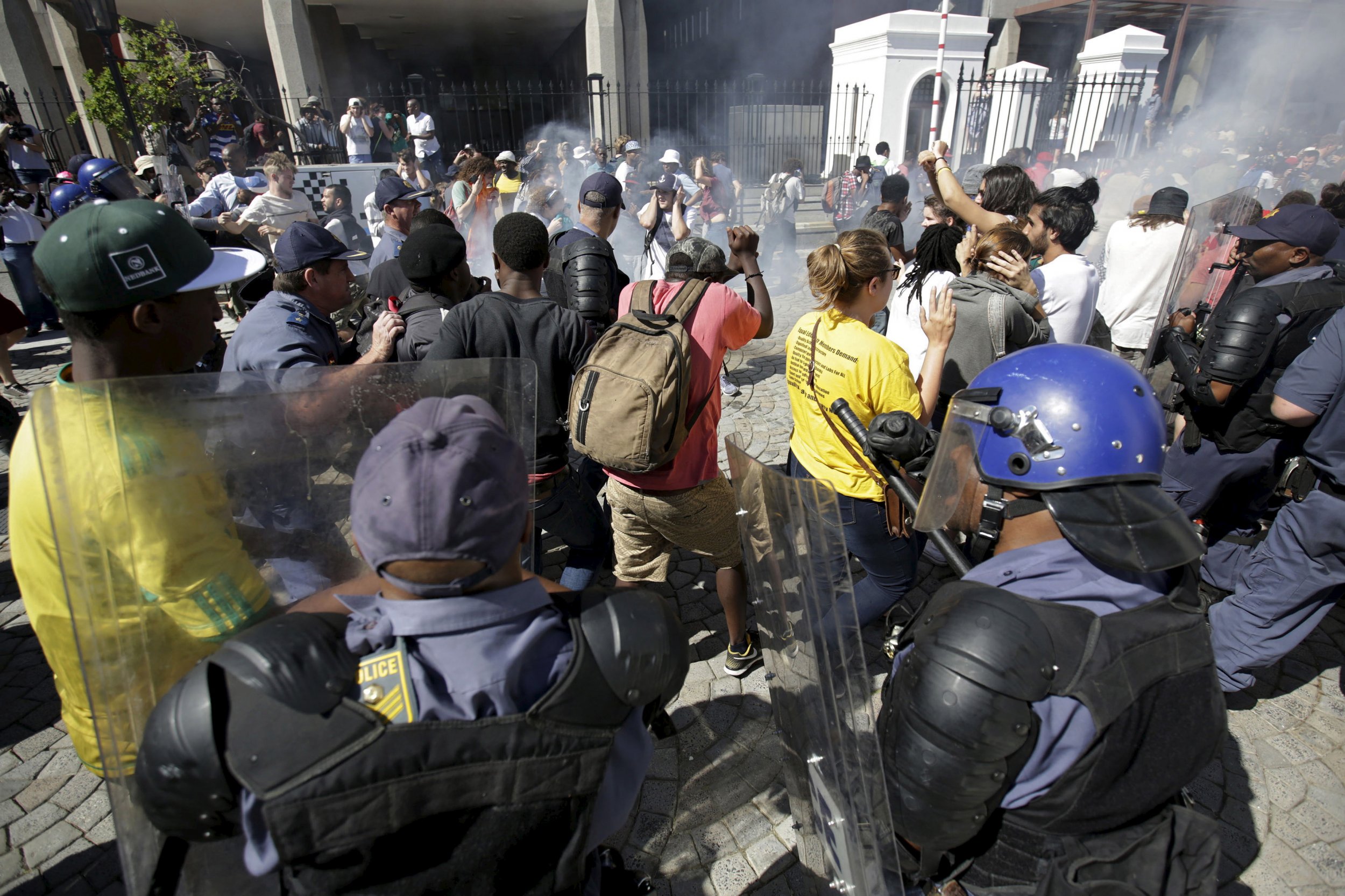
JOHANNESBURG (Reuters) - Three students were hurt during a rally against university fee increases in South Africa at which protesters threw stones and burned tires and police fired rubber bullets and stun grenades, one week into demonstrations at universities across the country.
South African universities initially wanted to increase tuition fees by up to 11.5 percent, prompting students to launch a campaign of protests that began on Oct. 13. Critics say the move will further disadvantage black students in Africa's most advanced economy.
About 150 students at Nelson Mandela Metropolitian University (NMMU) in the Eastern Cape were involved in running battles with police, who fired rubber bullets and used stun grenades to disperse the crowds.
It was not clear what caused the injuries to the three students, police said.
The students have rejected a proposal hammered out by some student leaders, university dons and Higher Education Minister Blade Nzimande on Tuesday that would cap fee increases at 6 percent for 2016 in line with inflation at 4.6 percent.
University students burned tires outside parliament in Cape Town and shouted at police on stand-by. The finance minister is expected to deliver the national medium-term budget from parliament at 1200 GMT.
At least 14 universities around the country are taking part in the demonstrations. Campuses have suspended classes owing to the demonstrations.
Twenty-three students at the University of Cape Town (UCT) were arrested on Tuesday and later released. Police said they would face charges of disrupting the peace.
South Africa's overall student population is mostly black and hampered by tight funding and the lingering effects of discrimination dating from white-minority rule. The proportion of blacks in higher education is still relatively low.
University administrators say that without much bigger subsidies from the government, they have no option but to raise fees to maintain academic standards.
Uncommon Knowledge
Newsweek is committed to challenging conventional wisdom and finding connections in the search for common ground.
Newsweek is committed to challenging conventional wisdom and finding connections in the search for common ground.





